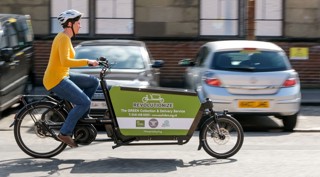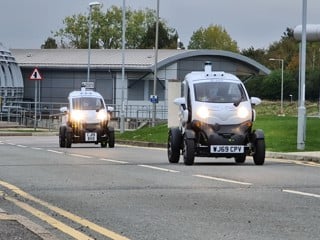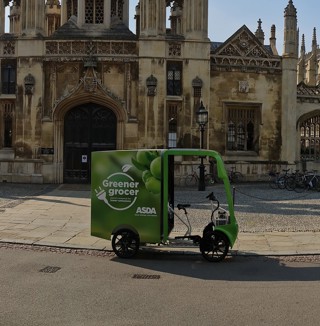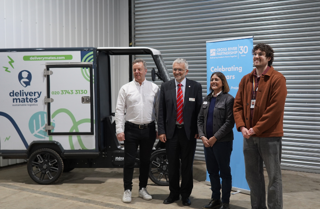The Driver and Vehicle Standards Agency (DVSA) has inspected and approved the Kar-go vehicle as a roadworthy, pending the refit of the autonomous functions.
The news marks a significant step towards making self-driving logistics in the UK a reality, says Kar-go.
In order to trial an autonomous vehicle on the roads in the UK, organisations need to ensure they have: a roadworthy vehicle; appropriate insurance in place; and a driver or operator in or out of the vehicle who is ready, able, and willing to resume control of the vehicle.
Once satisfied, Kar-go can begin trials with a safety driver in place, gradually increasing the degree of automation as the trial progresses.
William Sachiti, founder and CEO of Academy of Robotics, the team behind Kar-go, said: “We believe that all other autonomous vehicle trials on UK roads have been carried out in modified versions of previously approved vehicle types. So, Kar-go delivery bot will be the first vehicle designed for autonomous delivery to have been approved by the DVSA.”
A light-weight, electric vehicle, Kar-go has been custom-designed by Academy of Robotics to address the problem of last-mile deliveries.
It has been built for autonomous delivery, but like all new vehicles, the core vehicle had to be inspected and approved by the DVSA as a new vehicle type before being granted a number plate signifying it has been approved to travel on the roads.
Sachiti explained: “When you’re designing a vehicle for the road, safety is paramount. If you’re integrating two systems, you have to consider how those systems interact. Seemingly minor actions on the hardware side like the indicators turning on and off can create micro power surges, impacting the software in unforeseen ways.
“By custom-designing the vehicle as well as the operating system, we can ensure that the hardware and the software work seamlessly together, giving us greater control and crucially, minimising risk.”
Academy of Robotics has partnered with Eurovia UK, who are supporting and facilitating the on-road trials, including provision of footage gathered from their fleet.
Having already begun training their technology using footage gathered from Eurovia UK’s fleet, by moving to on-road trials, Academy of Robotics will be able to evaluate how this translates to real world conditions on the road and identify any adjustments needed to simulations based on the performance of the navigation system operating within the vehicle, driving in a normal suburban environment.
Sachiti concluded: “The DVSA approval of Kar-go represents an important milestone in our company’s journey, but also a key opportunity for the sector as a whole. So we are also working closely with the DfT’s Centre for Connected and Autonomous Vehicles (CCAV), BSI, TFL and our partners at Eurovia to ensure that safety is at the heart of everything we do.
“Now, we are looking forward to preparing for the next milestone, where we will start to deliver the benefits of Kar-go’s technology to the British public.”






















Login to comment
Comments
No comments have been made yet.